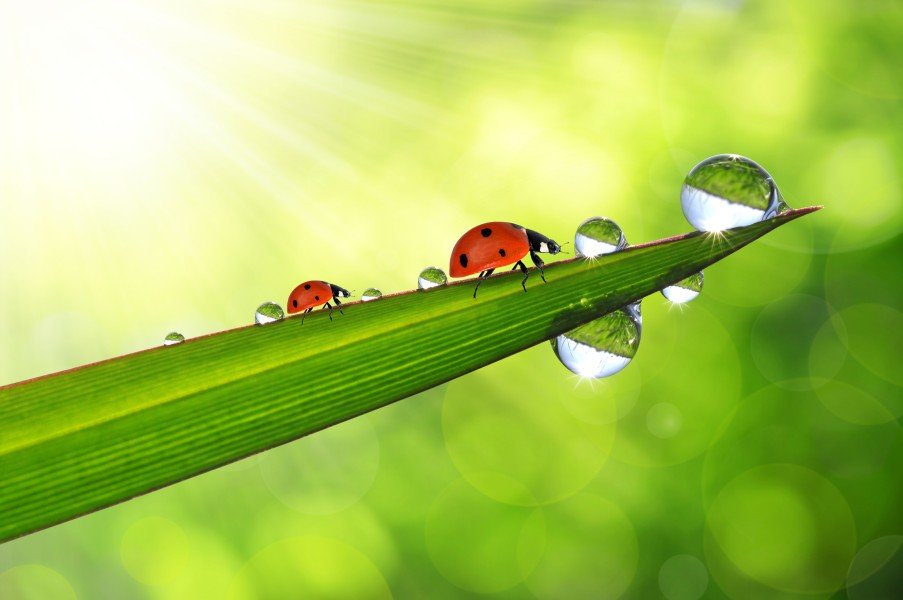Having sent a large part of this month out in nature, including studying wild horses in Poland I have gained some profound insights on collaboration, cooperation, and profitability, all inspired by the wisdom of Mother Nature herself. I firmly believe that nature holds the key to solving many of our world’s problems, so I’m excited to explore how we can draw inspiration from her remarkable ecosystems to create a more harmonious and prosperous future.
In a world driven by profit margins and competition, it’s easy to overlook the incredible lessons that the natural world offers. Nature, after all, has been refining its strategies for billions of years, and it has a lot to teach us about working together for mutual benefit.
Lesson 1: Symbiotic Partnerships
One of nature’s most stunning examples of collaboration can be found in the intricate relationships between species. Take, for instance, the extraordinary partnerships between bees and flowers. Flowers provide nectar and pollen, essential for bees’ survival, while bees aid in pollination, enabling the flowers to reproduce. This co-dependency is not solely about profit for either party; it’s a mutually beneficial relationship that ensures the continuation of both species.
In the business world, we can learn from these partnerships by seeking symbiotic relationships that benefit all involved parties. Collaboration doesn’t always have to be about immediate financial gain; it can also be about mutual support, shared resources, and a long-term perspective.
Lesson 2: Ecosystem Resilience
Nature’s ecosystems are models of resilience and sustainability. When one component of an ecosystem is under stress or faces a challenge, the entire system often adapts to support it. For example, when a drought threatens a forest, the trees release water vapour into the air, creating their microclimate, which can help prevent further moisture loss.
In the business world, we can apply this lesson by fostering environments where teams and organisations adapt and support one another when facing challenges. This resilience ensures that setbacks are only temporary and can lead to greater collective success in the long run.
Lesson 3: Diversity and Inclusion
Biodiversity in nature is not just a nice concept; it’s a critical element for the health and survival of ecosystems. A rich diversity of species contributes to the overall resilience and productivity of an ecosystem. Different species fulfil various roles, each one essential to the functioning of the whole.
Likewise, in business, diversity and inclusion should not be viewed solely as a matter of compliance but as a strategic advantage. A team with diverse backgrounds, experiences, and perspectives is better equipped to tackle complex problems and adapt to an ever-changing business landscape.
Lesson 4: Adaptation and Innovation
Nature is constantly evolving and innovating. Species that cannot adapt to changing conditions face extinction. On the other hand, those that embrace change and innovation thrive. This adaptability is a powerful lesson for the business world, which is constantly undergoing technological, social, and economic transformations.
In conclusion, Mother Nature is a treasure trove of lessons that we can apply to the business world and beyond. By focusing on collaboration, cooperation, and long-term benefits rather than immediate profit, we can create a future that is not only profitable but also sustainable and harmonious. It’s time we recognise that the natural world is our most profound teacher, guiding us toward a more prosperous and balanced future. Let’s embrace these lessons and build a world where we work together, just like the ecosystems that have thrived for eons.

Julia Felton (aka The Business Wrangler) is the founder of Business HorsePower. Business leaders, entrepreneurs and executives hire her to accelerate their business performance by harnessing the energy of their people to work more collaboratively together. By aligning purpose with actions the team achieves exponential results as everyone starts pulling in the same direction.
Julia believes that business is a force for good and through designing purpose-driven businesses that leverage the laws of nature, and the herd, you can create businesses founded on the principles of connection, collaboration and community that make a significant impact in the world.






